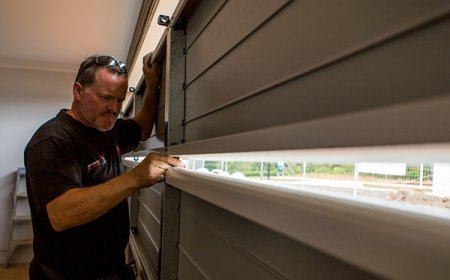Is Kerosene the Cheapest Heating Option in 2025?
Is kerosene still the cheapest home heating option in the UK in 2025? Discover updated prices, fuel comparisons, pros, cons, and cost-saving tips in this expert guide.

In the ever-evolving landscape of home heating, UK homeownersespecially those living off-gridare asking one vital question in 2025: Is kerosene still the cheapest way to heat our homes?
With fuel prices constantly shifting, government climate targets intensifying, and the push toward renewable energy growing stronger, its no surprise that many are reassessing their heating fuel choices. Kerosene has long held a reputation for being affordable, reliable, and widely used in rural Britain. But is it still the most economical option this year?
Lets explore kerosene's true value in 2025 compared to other heating options available across the UK.
What Is Kerosene Heating? A Quick Refresher
Kerosenealso known as 28-second oilis a light, clean-burning fuel thats used in oil-fired boilers and heating systems. It's typically delivered to homes by tanker and stored in an external oil tank. Common in off-grid areas where mains gas isnt available, kerosene has been the go-to for decades, especially in older homes that arent well-suited to electric heating.
In 2025, kerosene remains one of the most commonly used fuels for oil heating, but its affordability is now being re-examined.
Kerosene Prices in 2025: Where Do They Stand?
At the start of 2025, kerosene prices in the UK are averaging between 65p and 85p per litre, depending on your region, supplier, and how much you order. These prices can fluctuate week to week, often influenced by global oil markets, weather conditions, and seasonal demand.
While the price of kerosene has slightly increased compared to previous years, it still holds a significant edge over other off-grid heating options in terms of affordability.
What Affects Kerosene Prices in 2025?
-
Seasonal Demand: Buying in summer is still cheaper than waiting for winter.
-
Location: Rural areas often pay slightly more due to delivery logistics.
-
Supplier Competition: Areas with more local suppliers typically see better rates.
-
Global Market Trends: Oil prices, refinery costs, and geopolitical tensions continue to affect wholesale costs.
How Does Kerosene Compare to Other Heating Fuels in 2025?
Lets compare the most common heating options side by side to see where kerosene stands:
? Natural Gas
-
Cost: ~89p per kWh
-
Pro: Cheap unit price, consistent supply for those on the grid.
-
Con: Not an option for off-grid homes; standing charges apply.
-
Verdict: Cheapest for on-grid homes, but not relevant for rural areas.
? Electric Heating
-
Cost: ~2530p per kWh
-
Pro: Widely accessible, low maintenance.
-
Con: Expensive to run, especially in poorly insulated properties.
-
Verdict: Not viable for full-home heating in most off-grid UK homes.
? LPG (Liquefied Petroleum Gas)
-
Cost: ~7590p per litre
-
Pro: Cleaner burn than kerosene, similar infrastructure.
-
Con: More volatile prices and generally higher annual costs.
-
Verdict: Convenient but usually pricier than kerosene.
? HVO Fuel (Hydrotreated Vegetable Oil)
-
Cost: ~1.001.20 per litre
-
Pro: Environmentally friendly, very low carbon emissions.
-
Con: High cost, limited supply in 2025.
-
Verdict: Great for sustainability, but far from the cheapest.
? Biomass or Wood Pellets
-
Cost: ~300400 per tonne
-
Pro: Renewable and often grant-supported.
-
Con: Requires significant upfront investment and storage space.
-
Verdict: A long-term investment for eco-conscious households, but high initial costs.
Why Kerosene Remains Competitive in 2025
For the average off-grid homeowner, kerosene continues to deliver the best overall balance of price, performance, and availability. While not the greenest fuel, its low upfront costs and widespread usage keep it firmly in the mix.
Lower Installation Costs
Most homes that use kerosene already have compatible systems in place. Switching to another fuel like HVO or a heat pump can cost thousands in system upgrades.
Efficient Heating
Modern condensing oil boilers using kerosene can reach efficiencies of over 90%, meaning less wasted fuel and more heat for your money.
Predictable Supply
Despite occasional delivery delays in peak winter months, the UK's network of heating oil suppliers remains robust, especially in areas where kerosene is the norm.
Environmental Concerns: Whats the Catch?
Theres no denying that kerosene is a fossil fuel and contributes to carbon emissions. The UK government has pledged to phase out high-carbon home heating systems by the 2030s, and kerosene is on the list.
That said, in 2025, kerosene has not been banned or heavily taxed out of reach. Instead, incentives are being offered for homeowners willing to adopt greener alternatives such as air source heat pumps or HVO, but these options are still expensive.
? Future Outlook:
-
Kerosene wont disappear overnight, but its days may be numbered over the next decade.
-
Hybrid systems, such as solar thermal panels combined with oil boilers, are helping kerosene users transition gradually without a full overhaul.
-
Government grants are easing the financial burden for those who want to switch, but most rural homes still rely on oil heating for now.
How to Save Even More with Kerosene in 2025
Want to make your kerosene go further? Here are some proven tips:
-
Order Early: Buy in spring or summer when prices dip.
-
Join a Local Oil Buying Group: Bulk buying lowers your cost per litre.
-
Service Your Boiler Annually: An efficient boiler burns less fuel.
-
Upgrade Controls: Smart thermostats and zone controls help manage consumption.
-
Improve Insulation: Reduce heat loss and rely less on the boiler.
Final Thoughts: Is Kerosene the Cheapest Heating Fuel in 2025?
Yesif you live off-grid in the UK, kerosene is still the most cost-effective heating fuel available in 2025. While electricity, LPG, and HVO have their benefits, they simply can't match kerosene's balance of price, availability, and system compatibilityat least not yet.
Though it may not be the long-term future of home heating, kerosene remains a reliable and affordable option for households in 2025. And with careful fuel management and timely purchases, homeowners can keep their heating bills well under control.








































